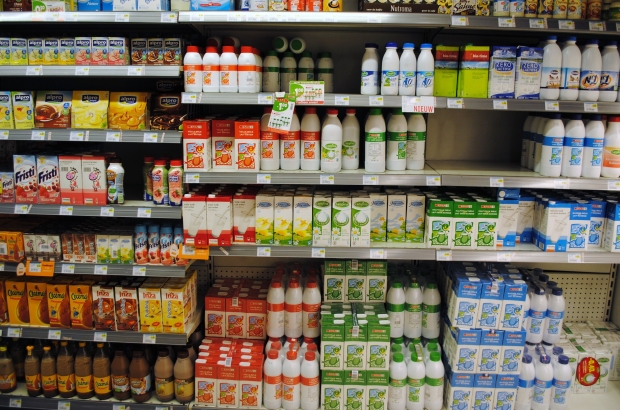- Daily & Weekly newsletters
- Buy & download The Bulletin
- Comment on our articles
Belgians increasingly shopping abroad for groceries
Belgians have never travelled so much to buy groceries, the country’s agri-food industry association Fevia has warned.
The food business association wants the government to do more to make shopping in Belgium more competitive compared to neighbouring countries.
It also asks for food companies to receive the same support as their neighbours from France, Germany and the Netherlands.
Shopping abroad may be making records, but Fevia points out that Belgians are not rushing to all border countries.
The difference in price is most notable in France, but it is no longer so marked in the Netherlands, for example, where VAT has increased.
Food prices in Germany are also not as low as they were a few years ago.
The big gains for Belgians across border are mainly seen with drinks. For example, a 1.5 litre bottle of water from a given brand in French supermarkets costs €0.61 compared to €0.93 in Belgium.
There are three reasons for the price gap. First, Belgium has a €0.10-per-litre tax on packaging, a bottle tax that does not exist in France. The level of VAT is also slightly higher. Then, for fizzy drinks, excise duties are higher in Belgium due to the soda tax
Fevia economist Carole Dembour warns that the problem is that once Belgians are in France to buy drinks, they stay there to buy other goods.
"These drinks have real consumer appeal in supermarkets abroad," she said. "So, in fact, the Belgian consumer crosses the border to fill his boot with drinks and then takes the opportunity to buy other products."
Dembour estimates that some €700-750 million was spent on groceries abroad by Belgians in 2023.
Other products, notably fruit and vegetables, are not so expensive. Indeed, they are significantly cheaper in Belgium than in neighbouring countries (17% less than in France and 12% than in Germany) according to a study from Belgium’s Price Observatory commissioned by economy minister Pierre-Yves Dermagne.
Between 2016 and 2022, the average price of food products and non-alcoholic drinks in Belgium rose by 15.3%, according to Price Observatory figures.
This compares favourably with Germany, where food become 26.4% more expensive during the same period. In the Netherlands prices rose by 21.2% and in France 16.4% from 2016 to 2022.


















Comments
Belgium is the only country I've lived in that doesn't allow competitive pricing. That means that name-brand products cost exactly the same in every single Belgian supermarket. Even in supposed discount chains like Aldi and Lidl. A person who worked for Auchan in France told me that when Carrefour wanted to take over the Belgian GB chain, in order to get official approval of the takeover, they had to sign an under-the-table agreement not to offer competitive prices. And since the supermarkets feel they have a captive audience here, naturally prices in Belgium are higher than in France, Germany or Luxembourg. How great would it be for Belgian consumers if someone had the courage to ban this price fixing and force supermarkets to actually compete with each other. Prices have gone up everywhere, but Belgium is still the most expensive country for grocery shopping. Even if food prices supposedly went up more in Germany, German food prices will still be lower than in Belgium.
What kind of idiot drives for miles to buy cheaper bottled water when it comes free from the tap?